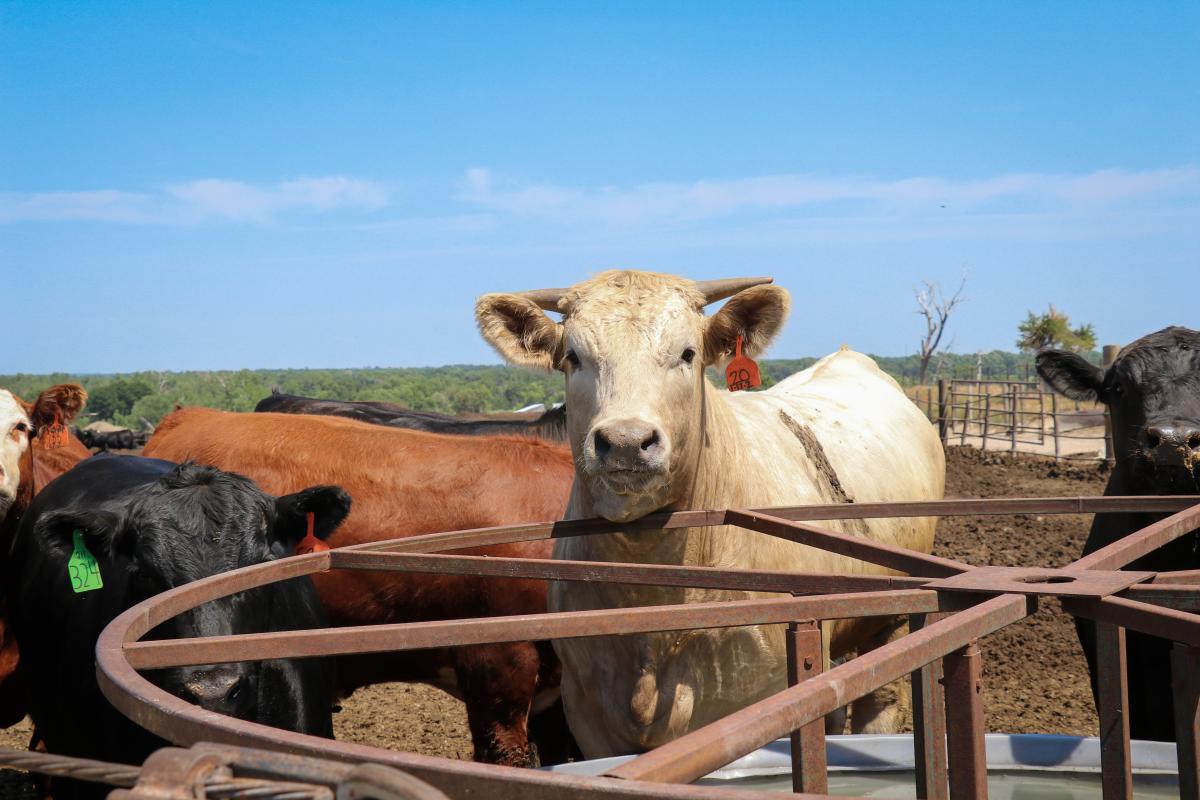
Keeping Nebraska at the Forefront of the Beef Industry
NIBS Hub Helps Beef Producers Adapt to Industry Stressors
The Nebraska Integrated Beef Systems (NIBS) Hub provides Nebraska beef producers with access to cutting-edge technology and research to adapt to stressors and maintain their position as an industry leader.
Beef is a nutritious protein source to feed the world, making it an economic driver for the state of Nebraska. The NIBS Hub serves as a platform for scientists, producers, and others in the industry to discuss emerging issues and needs for beef production.
Rick Rasby, associate dean of Nebraska Extension at the University of Nebraska–Lincoln, explores how the NIBS Hub is impacting Nebraska beef producers and ways Nebraska Extension can further this research.
“The NIBS Hub better positions beef producers to access new technology and utilize that technology to enhance quality of life, add sustainability to resources, and increase profitability,” Rasby said.
The job of a beef producer is to keep cattle comfortable in every environment and circumstance, and the Hub provides producers with the most recent research on best practices.
“We are dedicated to ensuring that we can raise beef in a way that the animal does not feel stressors and performs while being comfortable and healthy in their environment,” Rasby said.
Social and Ecological Stressors
John Pollak, research professor at the university, and Walter Schacht, former interim director of the Center for Grassland Studies, and co-leaders of the NIBS Hub both said social and ecological stressors impact the beef industry.
“The stress placed on beef systems is also caused by social and ecological aspects that impact consumer perceptions,” Schacht said. “We respond with the research that informs our education programs.”
Public perception of animal welfare and handling issues may also drive changes.
“Even though some stressors are not biological, and not impacting animals directly, they are impacting our social license to produce those animals in the environments we are using,” Pollak said.
The NIBS Hub pulls together a broad range of perspectives impacting the beef industry.
“The Hub is the mechanism that allows for the nimble assembly of unique groups doing research to provide short-term strategies, and long-term programs to meet these needs of the beef industry,” Pollak said.
Nebraska Extension Shares New Technologies
Nebraska Extension is an important part of the NIBS program as Extension educators share new technologies and developments suggested by research with people around the state.
“Nebraska Extension has the opportunity to take current and forward-thinking research, package it in a way that is understandable to producers, and then help them see how it could fit into their management system,” Rasby said.
Using various platforms like social media and in-person events allows Nebraska Extension to connect with beef producers.
“The idea is to take research done at the university and share it with producers using workshops, conferences, field days, on-ranch research, Twitter, YouTube videos, our beef website podcasts and the Beef Report,” Rasby said.
Centers Focused on Stress Research
NIBS Hub faculty members are launching several key research projects to address critical stressors within the beef industry. Two new research centers will be key to that effort: the Feedlot Innovation Center and the Ranch Innovation Center.
The Feedlot Innovation Center, expected to be operational by summer 2023, will allow controlled testing of multiple environments for feedlot production. Housing innovations will improve animal welfare with the potential to minimize stress.
Its production scale positions it as an ideal test bed for new and emerging technologies with immediate application to producers around the state and beyond.
The Ranch Innovation Center, funded by the USDA, supports rangeland precision livestock management. Researchers will use the latest technology including GPS, virtual fencing, unmanned aerial vehicles, and novel electronic feeding systems with the goal to select cattle which are efficient and resilient to climate change including drought.
UNL is positioned to be leaders in this area, in Nebraska, nationally, and internationally.
NIBS Hub Future
The NIBS Hub is the site of critical conversations about beef production systems. University faculty, Nebraska Extension, the College of Agricultural Sciences and Natural Resources, our statewide network of research, education, and extension centers, and a broad, engaged external advisory committee are instrumental in keeping Nebraska beef at the top of the industry for generations to come.
“The advisory committee of NIBS, along with the NIBS Hub platform,” Rasby said, “create a co-learning environment that envisions the needs of the industry years down the road.”
New leadership to the NIBS Hub has begun in 2022, following the retirement of both Pollak and Schacht.
Galen Erickson, professor in the Department of Animal Science is the Lead, and Craig Allen, professor in the School of Natural Resources and Director of the Center for Resilience in Agricultural Working Landscapes (CRAWL), and Jerry Volesky, professor in the Department of Agronomy and Horticulture and interim director of the Center for Grassland Studies, are both facilitators.
The Hub has a renewed vision, and mission, and is working on a three-year action plan, including new branding.
To follow the latest activities of the NIBS Hub, visit beef.unl.edu.
Key Takeaways:
- 1. The Nebraska Integrated Beef Systems (NIBS) Hub is integral in giving Nebraska beef producers the tools to adapt to industry stressors and maintain their position as an industry leader.
- 2. New technology and research discovered by NIBS hub members will allow beef producers to remain profitable and sustainable for many generations.
- 3. Nebraska Extension is an important part of the NIBS Hub as Extension educators deliver research findings to producers and facilitate evaluation in a live production setting.
- 4. The Feedlot Innovation Center and Ranch Innovation Center are working to make further advancements to improve beef cattle’s adjustment to stressors.
- 5. To follow the latest activities of the NIBS Hub, visit beef.unl.edu.
